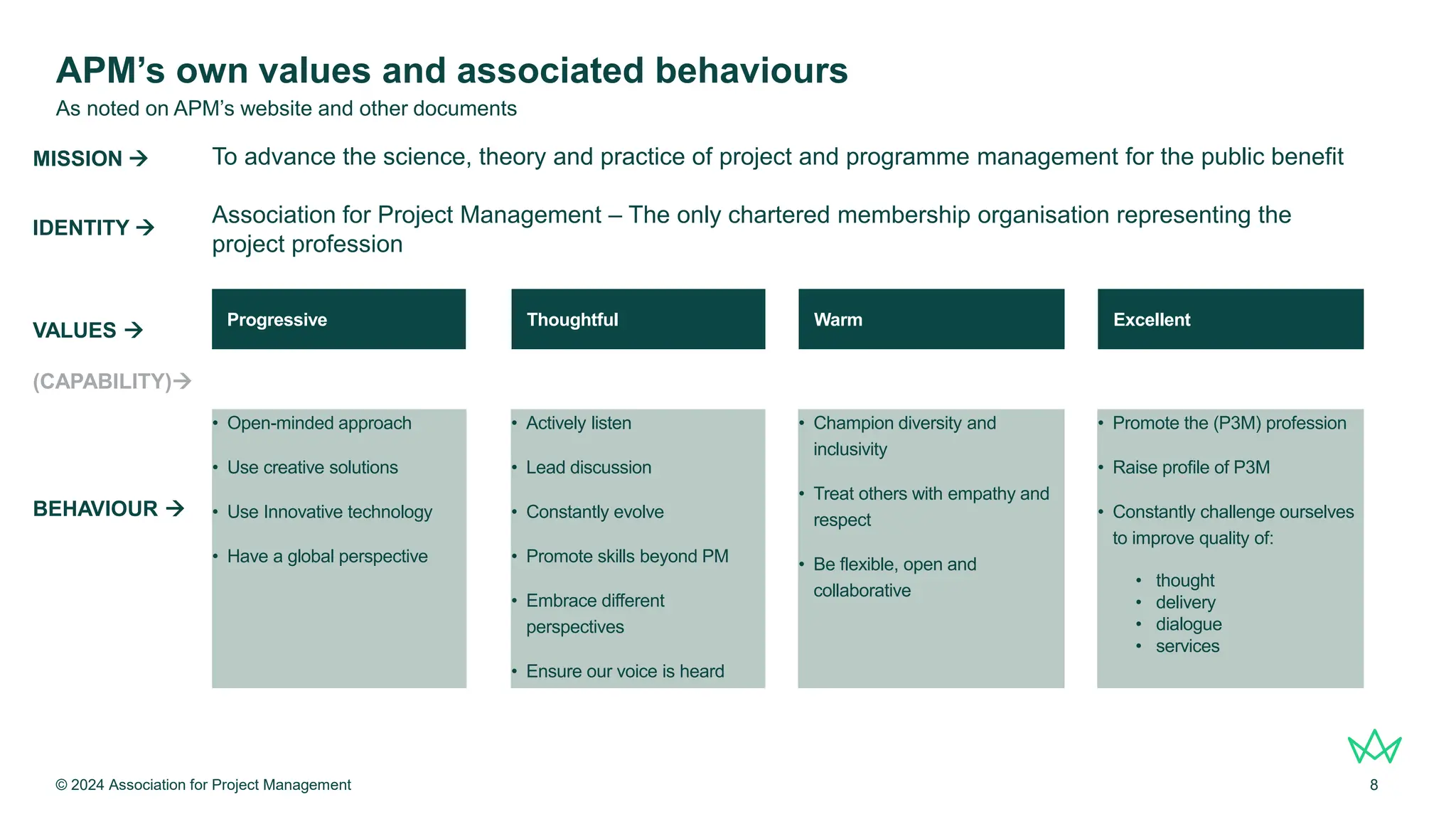The purpose of Ethics and Values in a project context webinar
Tuesday 14 October 2025
APM People Interest Network
Speaker panel:
Prof. Adam Boddison OBE, Laura Ewen and Robert Dilts
The webinar was hosted by Tim Lyons
News story writeup URL:
https://www.apm.org.uk/news/the-purpose-of-ethics-and-values-in-a-project-context-webinar/
Content description:
Many professional bodies aspire to an Ethical Code and most organisations set out the Values they hold important. This webinar explored what that means for the rest of us.
Moral relativism is the view that judgments of what is right or wrong only have meaning depending on your particular standpoint. It means there are no absolute right or wrong answers to questions of ethics or values.
This webinar asked whether this view is appropriate in the workplace, and in a project context in particular.
Our panel consisted of experts from the fields of philosophy and project management and examines the practicalities of instilling a sense of ‘corporate culture’ into an organisation.
Project teams can often be embedded within client organisations. What happens when your culture and values differ from theirs?
We gathered our audience’s own experience in this area, and discussed this with our panel.











